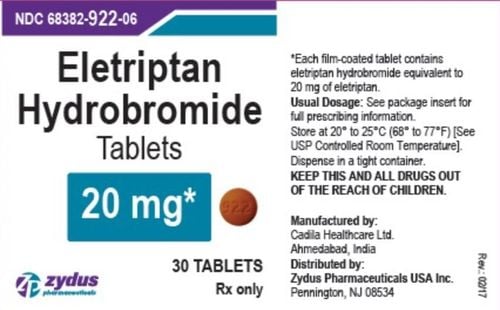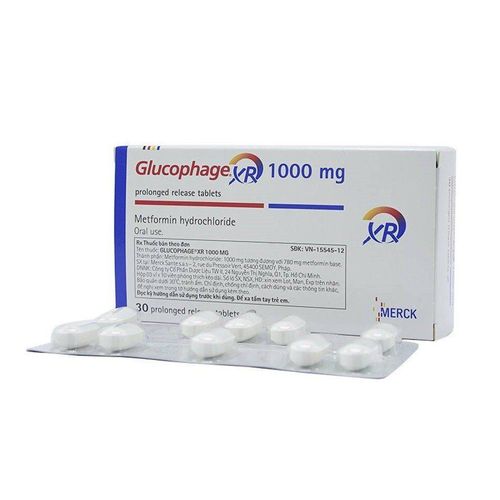This is an automatically translated article.
Fish in the daily diet has been linked to a number of health benefits. Because, the nutritional composition of fish is especially rich with protein, double-chain polyunsaturated fats... Not only that, fish in the daily diet also helps to improve disease conditions such as: cardiovascular, obesity, diabetes.... So how to eat fish to improve nutritional value for health?1. The relationship between fish diet and health
Fish consumption has long been linked to a number of health benefits as fish is an important source of nutrients including: protein, long-chain omega-3 polyunsaturated fatty acids (n-3 PUFAs), as well as several vitamins, minerals selenium, iodine, potassium, vitamin D, vitamin B. Low absorption of some micronutrients, including iodine and vitamin D in a UK population suggests that regular fish consumption may be help improve intake in these groups.So what are the benefits of eating fish? It is now suggested that eicosapentaenoic acid n-3 PUFAs (EPA) and docosahexaenoic acid (DHA) in oily fish and fish oil, are responsible for some of the beneficial health outcomes associated with fish consumption.
The British Dietetic Foundation has conducted an in-depth review of the scientific evidence investigating the link between fish consumption and various health outcomes. At the same time, the study also looked at the effects of long-chain n-3 PUFAs on cardiovascular disease and health parameters to determine if there were any positive effects on the body from eating fish. . However, it is in fact due to the presence of these fatty acids or not.

Cá là nguồn dinh dưỡng quan trọng bao gồm protein, axit béo không bão hòa đa và một số vitamin...
2. The benefits of fish in the diet with some diseases
2.1. Overweight and obesity
Diets that include a lot of fish, such as the Mediterranean diet, are often associated with a reduced risk of overweight and obesity. There is some evidence from randomized controlled trials (RCTs) that long-chain n-PUFAs can positively affect body composition.In two studies, supplemental use of long-chain n-3 PUFAs was associated with a reduction in total body fat mass, and in another study, supplementation with long-chain n-3 PUFAs resulted in weight loss more and reduced waist circumference compared with the control in men but not in women. The researchers have suggested that a change in fuel metabolism, not storage and towards fat oxidation, may be responsible for these findings. However, not all studies demonstrate the effect of long-chain n-3 PUFAs on body composition.
2.2. Heart-related diseaes
Population studies have generally shown a protective effect of fish consumption on the risk of cardiovascular disease (CVD), including stroke. However, the strongest association was found with mortality from coronary heart disease (CHD), whereas no significant effect was observed on the risk of nonfatal CHD.The most recent meta-analysis of studies on fish intake and cardiovascular disease found a 13% lower risk of death from CHD in those in the highest compared with the lowest. However, total fish intake for the highest and lowest fish species varied between studies, depending on the fishing habits of the study populations (e.g., fish intake is often high in different countries. such as Japan, while in many European countries the rate is much lower). Differences in fish eating habits of study populations may account for some of the differences in findings between single studies and make it difficult to quantify the amount of fish needed for beneficial effects. for health.
Observational studies show that fish consumption is associated with a moderate reduction in the risk of cerebrovascular disease, including stroke. The most recent systematic review found that people who ate 5 or more servings of fish per week had a 12% lower risk. Those who ate two to four servings of fish had a 6% lower risk of stroke than those who ate fish less than once a week. The authors of this review suggest that the observed effect cannot be explained by long-chain n-3 PUFAs alone, but other nutrients or intake-related dietary and lifestyle factors. Fish intake may contribute to this effect.
Most evidence suggests a stronger association between ischemic stroke than hemorrhagic stroke, but there is some conflicting evidence.
Very useful observational studies have revealed an association between certain dietary patterns and health outcomes, but randomized control classes (RCTs) are needed to demonstrate a causal link. Evidence from RCTs on the effect of n-3 long-chain PUFAs on cardiovascular disease risk has mainly come from secondary prevention studies and is inconsistent. In addition, some uncertainty exists as to whether the addition of n-3 long-chain PUFAs provides overall protection or affects CVD. In particular, recent studies do not support the hypothesis that long-chain n-3 PUFA supplementation is beneficial in preventing secondary CVD, although older studies support this hypothesis.
The different study results may be due to differences in study design and characteristics of the study population (eg, heart disease stage at baseline) and more detailed analysis

Các nghiên cứu cho thấy tác dụng bảo vệ của việc ăn cá đối với nguy cơ mắc bệnh tim mạch
2.3. Type 2 diabetes
Current evidence from population studies does not suggest that fish consumption is beneficial in reducing the risk of type 2 diabetes. Some observational studies have even reported that eating fish is associated with a higher risk of type 2 diabetes. However, population studies are not suitable to establish cause-and-effect relationships, so factors other than fish intake per person may contribute to a higher risk. This needs to be investigated further. It is possible that the type of fish or the processing method (eg frying) is involved.2.4. Cancer
Evidence from population studies suggests that fish may have some protective effect on colorectal cancer risk, but the evidence is too conflicting to draw any firm conclusions. Likely, any of the observed protective effects could be due to other factors, such as: lower meat intake by fish eaters (red meat, especially processed meat, is linked associated with a higher risk of colorectal cancer). There is no convincing evidence of an association between fish consumption and other types of cancer, including breast, pancreatic, prostate, bladder, stomach, and ovarian cancers.2.5. Asthma, eczema and other allergic diseases
There is some evidence that eating fish during pregnancy may reduce the risk of allergic diseases in children, especially for eczema. However, the findings were inconsistent and there was no clear evidence for the type of fish or potential mechanisms. There is also some evidence that eating fish in childhood is associated with a reduced risk of allergies, but again the findings are inconsistent. Long-chain n-3 PUFA supplementation was not effective in reducing the risk of asthma in adults or children. The evidence on fish and allergic manifestations still requires further studies in this area.2.6. Cognitive and functional development
Fatty fish is a good source of DHA, which is necessary for brain development. Although DHA can be formed in the body to a limited extent, it has also been suggested that dietary intake of preformed DHA during pregnancy and lactation is important. . On the other hand, some fish contain contaminants (such as mercury) that can harm fetal brain development. Many observational studies have shown that eating fish may be beneficial for cognitive development, but the evidence is inconsistent. Long-chain n-3 PUFA supplementation during pregnancy or lactation or via formula did not improve cognitive development. It should be noted, however, that the effect of diet on cognitive development is difficult to establish because cognitive development is influenced by a range of factors.Moreover, is it good to eat a lot of fish? There is evidence that dietary intake of DHA in a fish-rich diet and blood levels of DHA may be associated with a reduced risk of dementia and Alzheimer's disease. Besides, the rate of cognitive decline is slower, but not all studies have found an association. Data from intervention studies do not suggest that n-3 long-chain PUFA supplementation is effective in preventing cognitive decline.

Cá giàu béo là nguồn cung cấp DHA, cần thiết cho sự phát triển của não bộ
2.7. Bone health
The nutrients found in fish, including protein, calcium and vitamin D, play an important role in bone health and development. Oily fish are an important source of vitamin D and calcium. A role for long-chain n-3 PUFAs in bone metabolism has also been suggested, but the evidence is too limited to draw any conclusions. There is some evidence from cohort and cross-sectional studies that eating fish may be associated with better bone health, but not all studies have found such an association.2.8. Other conditions
Some people with inflammatory diseases such as rheumatoid arthritis report that their symptoms are relieved by supplementing with long-chain n-3 PUFAs. However, the evidence on fish consumption and the risk of developing rheumatoid arthritis is too limited to draw conclusions. A small number of studies have investigated the potential protective effects of fish and long-chain n-3 PUFAs on the risk of chronic obstructive pulmonary disease, but there is not enough evidence to draw any conclusions.3. Recommended fish
The official recommendation from the UK Department of Health is to eat at least 2 servings of fish (140g each) per week, one of which should be oily. Current UK recommendations are thought to be particularly relevant to finfish, however shellfish such as shrimp, crab, mussels and squid also provide modest amounts of n-3 fatty acids as well as trace minerals. other nutrition. Benefits at higher intakes are possible, but the evidence was insufficient to draw firm conclusions at the time of review by the Scientific Advisory Committee on Nutrition (almost 10 years ago). A larger number of studies are now available and a more accurate estimate of benefits at higher intakes can be made.The above analysis has partly explained the question of whether eating fish is good and what are the health benefits of eating fish. If you need more specific advice about a healthy, standard diet for each condition, you can seek advice from a specialist doctor or a nutritionist at a hospital.
Please dial HOTLINE for more information or register for an appointment HERE. Download MyVinmec app to make appointments faster and to manage your bookings easily.
Source: nutrition.org.uk












